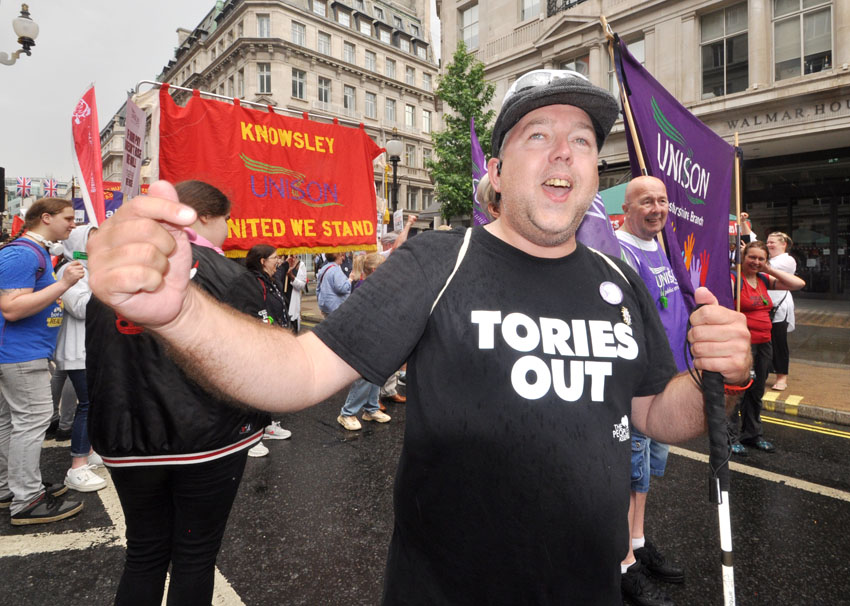THE Bank of England yesterday raised its interest rate from 4.5% to 5%, the highest level for 15 years, in a declaration of war against the working class, its trade unions and the middle class.
The rise was more than expected as the Bank of England moved to make borrowing much more expensive to slow soaring prices, and lay the basis for a campaign to make unions agree to wage cuts, to avoid the closures of whole sections of industry.
The Bank increased rates to 5% from 4.5%. Most had expected a smaller rate rise, but the government’s advisers are demanding that the only way to tackle inflation is to increase the numbers of jobless, to put pressure on the trade unions to end the strike wave.
Bank of England governor Andrew Bailey warned: ‘If we don’t raise rates now, it could be worse later.’
Governor Bailey said he knew the rise would be ‘hard’, and: ‘Many people with mortgages or loans will be understandably worried about what this means for them … but inflation is still too high and we’ve got to deal with it,’ he concluded.
The bank has voted to create the conditions where bosses will engage in mass sackings if workers do not accept whopping wage cuts.
Chancellor Jeremy Hunt backed the Bank saying it was the only ‘long-term way to relieve pressure on families with mortgages. If we don’t act now, it will be worse later.’
However, yesterday’s rise in the bank rate is just the start of a series of planned rate rises directed at weakening and then destroying the power of the trade unions.
Chancellor Hunt is planning more interest rate rises, making it more expensive to borrow money from the banks, meaning people will have less to spend, their children will go hungry, while threats are made to workers that it is either wage cuts or closures.
The average two-year fixed residential mortgage now stands at 6.19% while the five-year rate is 5.82%. In June last year, those rates were closer to 3%.
Millions of first time buyers and those about to re-mortgage are now feeling the pinch and there have been calls for the government to step in which have been rejected.
Chancellor Hunt and Prime Minister Rishi Sunak have dismissed suggestions that ministers could intervene, since they are behind the current rate rises and the plans for more rate rises.
They are looking to the rate rises to spearhead the bosses drive to cut wages using closure threats.
Hunt is meeting with lenders today, as pleas grow for more to be done. Consumer champion Martin Lewis has warned that ‘a mortgage ticking time bomb is now exploding’ under the middle class.
The Bank’s Monetary Policy Committee (MPC), which sets UK rates, voted 7-2 in favour of a half percentage point rise – its biggest hike since February.
Two members of the committee voted to keep rates on hold.
In a letter to Hunt, Bailey said that overall inflation was still set to fall ‘significantly’ during the course of the year, as energy prices come down.
But he added that the Bank would continue to monitor inflation closely, and would raise rates further when necessary.
Interest rates remain the Bank’s primary tool to lower inflation, despite debate over their effectiveness.
The Bank added that given the number of people yet to come off fixed-rate mortgage deals, the full impact of recent rate rises would ‘not be felt for some time’.
Workers must demand that their unions organise a general strike to bring down this government.
They must demand a sliding scale of wages to keep pace with inflation, and reduced hours in place of sackings with no loss of pay.
Above all, the unions must call a general strike to bring down the Tories and bring in a workers government.
• See editorial
